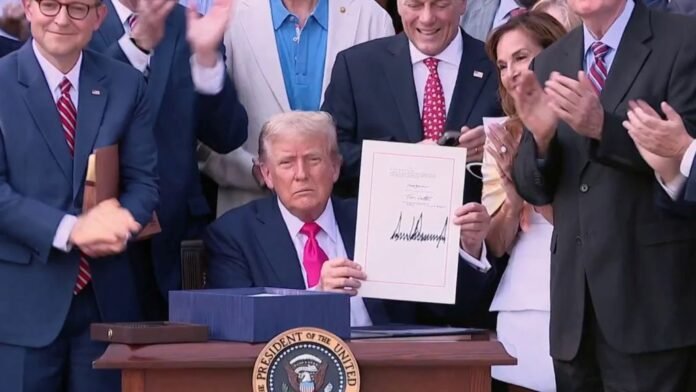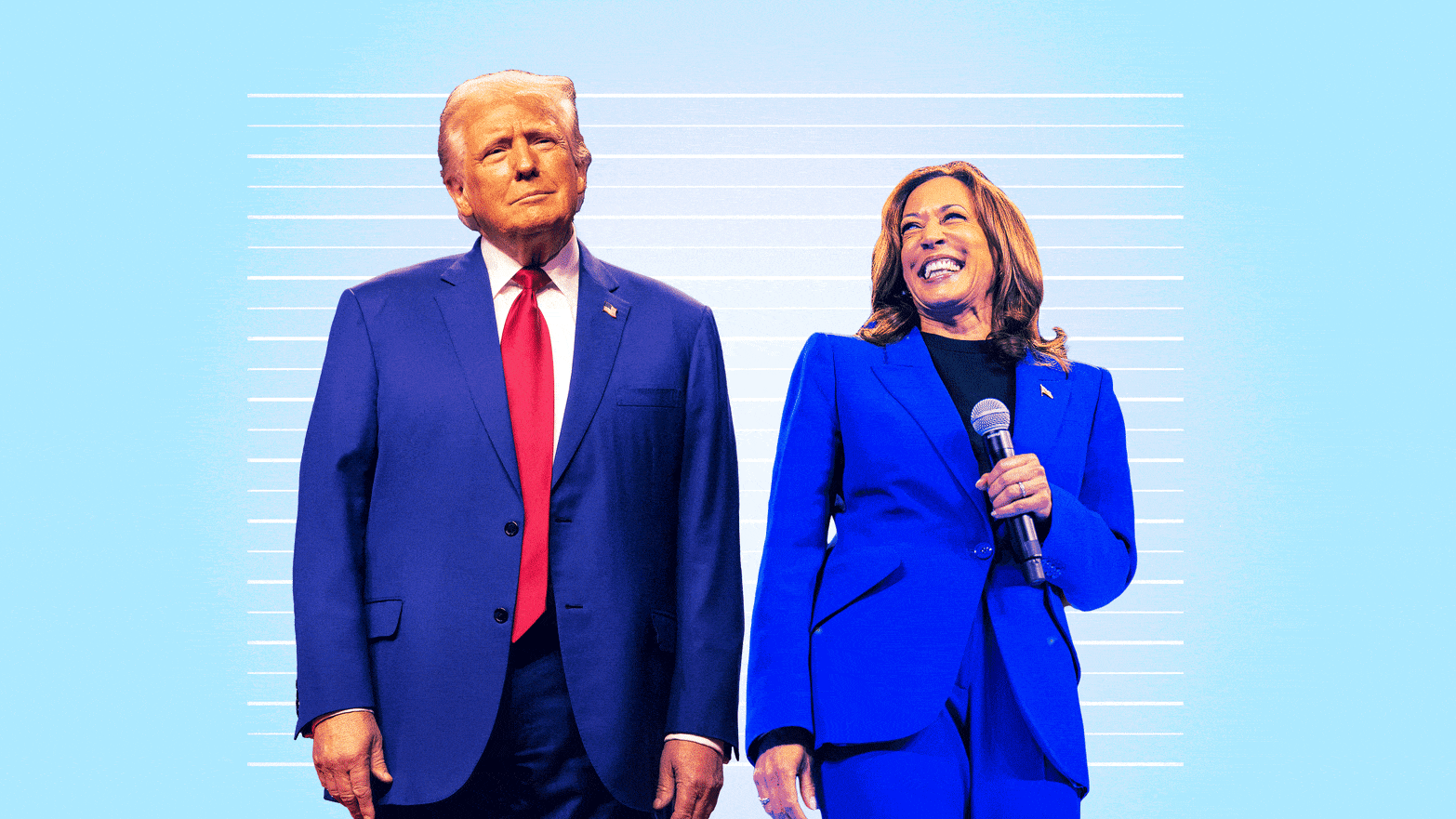US President Donald Trump has signed into law a sweeping new policy bill, marking a major legislative win for his administration just ahead of the 250th anniversary of American independence.
The 870-page bill includes a wide range of measures: from steep tax cuts and slashes to social safety programmes, to expanded defence and immigration spending.
With the stroke of a pen, Trump’s economic and security agenda takes a massive step forward — but not without resistance.
“The largest spending cut, and yet, you won’t even notice it,” Trump told supporters from the White House balcony on Friday. “The people are happy.”
A Bill Packed with Wins—and Losses
Passed narrowly by 218 votes to 214 in the House, the bill had earlier cleared the Senate only after Vice President JD Vance cast a tie-breaking vote. It includes the extension of Trump’s 2017 tax cuts, a ₦150 billion boost to defence, and ₦100 billion to Immigration and Customs Enforcement (ICE).
It also cuts deep into Medicaid and food assistance programmes, with nearly 12 million Americans expected to lose health coverage over the next decade, according to Congressional Budget Office estimates.
While Trump celebrated the bill with a patriotic military fly-past of B-2 bombers, F-35s and F-22 jets, critics painted a much darker picture.
“An extraordinary assault on the healthcare of the American people,” said House Minority Leader Hakeem Jeffries during a nine-hour filibuster-style speech just before the vote.
Still, only two Republicans broke ranks. The rest of the party fell in line, allowing Trump to secure a symbolic win on the eve of the country’s major milestone.
Supporters Celebrate, Critics Warn of Hardship
Supporters at Trump’s Iowa rally cheered the bill, but many admitted they knew little about it. Meanwhile, low-income families fear what lies ahead.
One 26-year-old father said he would take on a second job if cuts to food subsidies affected his family. “I’m going to make sure that I can do whatever I can to feed my family,” he said.
Experts believe the tax cuts will benefit the wealthy disproportionately, with around 60% of the gains going to those earning above $217,000.
Even as Republicans tout the bill as a driver of growth, economists warn it could swell the deficit once the initial tax bump fades
Rate, Like 👍, Comment💬, share this article, Follow us on our social media handles, and Submit your own story to get featured and earn rewards!






